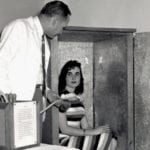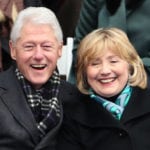 Mysteries
Mysteries  Mysteries
Mysteries  History
History 10 Surprising Stories About the Texas Rangers
 Humans
Humans 10 Philosophers Who Were Driven Mad by Their Own Theories
 Miscellaneous
Miscellaneous 10 Video-Game-Worthy Weapons and Armors from History
 Weird Stuff
Weird Stuff 10 Psychics Who Accurately Predicted Wartime Events
 The Arts
The Arts 10 Pieces of Art Inspired by a Broken Heart
 Health
Health 10 Science Fiction-Sounding New Medical Treatments
 History
History 10 Surprising Facts About the Father of Submarine Warfare
 Space
Space Ten Astonishing New Insights into Alien Worlds
 Weird Stuff
Weird Stuff 10 Bizarre Summer Solstice Rituals Still Practiced Today
 Mysteries
Mysteries Top 10 Haunting Facts About the Ghost Ship MV Alta
 History
History 10 Surprising Stories About the Texas Rangers
 Humans
Humans 10 Philosophers Who Were Driven Mad by Their Own Theories
Who's Behind Listverse?

Jamie Frater
Head Editor
Jamie founded Listverse due to an insatiable desire to share fascinating, obscure, and bizarre facts. He has been a guest speaker on numerous national radio and television stations and is a five time published author.
More About Us Miscellaneous
Miscellaneous 10 Video-Game-Worthy Weapons and Armors from History
 Weird Stuff
Weird Stuff 10 Psychics Who Accurately Predicted Wartime Events
 The Arts
The Arts 10 Pieces of Art Inspired by a Broken Heart
 Health
Health 10 Science Fiction-Sounding New Medical Treatments
 History
History 10 Surprising Facts About the Father of Submarine Warfare
 Space
Space Ten Astonishing New Insights into Alien Worlds
 Weird Stuff
Weird Stuff 10 Bizarre Summer Solstice Rituals Still Practiced Today
10 Oddly Believable Conspiracy Theories About The Unabomber
Ted Kaczynski, known to most as the Unabomber, was a genius who used his talents to construct and plant bombs that would lead the FBI around in circles for 17 years.[1] He was a mathematician-turned-ecoterrorist who used threats to get his 35,000-word manifesto published in The New York Times and The Washington Post. According to many, including his own family, he was a mentally ill loner who had struggled with society since he was in diapers.
But this article isn’t about what the Unabomber is or was. This article is about what might have been. Was Ted Kaczynski part of a brainwashing experiment for the CIA? Were the bombings all part of a government long con? Was he responsible for even more killings than we know? Was he responsible for any murders at all? As we look back through a lens colored by global warming and the encroachment of technology into our daily lives, we have to ask: Was he right?
10 Hives

“Baby home from hospital and is healthy but quite unresponsive after his experience,” Wanda Kaczynski wrote in her eldest son’s baby book on March 12, 1943. Nine-month-old Theodore John Kaczynski had been admitted to the hospital after developing a dangerous case of hives. During his stay, he was subjected to terrifying experiences that were standard hospital procedure at the time. He was stripped nude, restrained in a spread-eagle position, and examined by many people he did not know, and even his parents were kept quarantined from him. This went on for a full month before he was released.
His mother recalled that at first, he would cry and reach out. A hospital photo of his first examination shows him clearly terrified, with tears in his eyes. Soon, this would give way to a chilling lack of response. Children kept in isolation usually develop hospitalism, a condition where the child loses all interest in affection and, in extreme cases, may be permanently damaged or even die.[2]
Kaczynski did not seem to recover as he aged. Throughout school, he would not play with other children. Some believe that hospitalism and permanent psychological damage are responsible for the crimes that he would go on to commit. While this very likely contributed, it is worth noting that his treatment was standard procedure at the time. Not everyone who was kept in this horrific baby quarantine would go on to become a terrorist. Kaczynski may have just been unlucky.
9 A Psychological Experiment
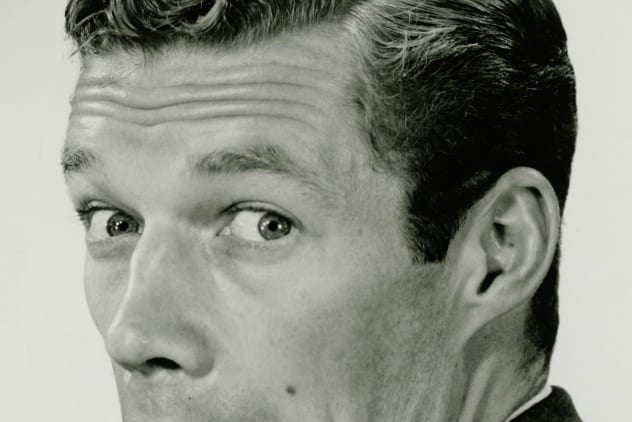
In 1958, Ted Kaczynski entered Harvard as a studious, painfully isolated, and vulnerable 16-year-old. He had come to feel as if his classmates in high school thought he was a freak, and his family thought very little of him. When he started at Harvard, he stayed in a dormitory for students younger than the average freshman, where most boys kept to themselves. In 1959, he was pulled into a study of stress on the human psyche that was being conducted by psychologist Henry A. Murray.[3]
Murray’s experiment involved a few steps. First, his subjects would be tasked with keeping an extremely personal diary full of their hopes and dreams. The participants believed that they would use this diary in a series of debates with other students. Second, the students would show up for their debates to find themselves in an interrogation instead. A professional interrogator would use their personal diaries to utterly humiliate them while an EKG machine and camera recorded their reactions. Third and finally, the students would be called back to repeatedly watch the tapes of their humiliation for further observation.
One participant, known in documentation as “Lawful,” was a favorite of Murray’s because of his honesty and responsiveness. He reacted very strongly to the experiment, which gave the psychologist a lot of data to analyze. That particular student was Kaczynski, whose life began to unravel around the time of his graduation at only 20.
8 MK-ULTRA

So, what was the point of Murray’s study? Technically, he was observing human reactions to stress. Not so technically, he may have been developing mind control. The study took place around the same time that MK-ULTRA was being carried out in about 80 institutions throughout the United States and Canada. Murray is suspected to have had ties to the CIA due to his work with its predecessor, the OSS, during World War II.[4]
Kaczynski himself has debunked this, stating that the experiment was only unpleasant once for about 30 minutes. He was clear that no part of it was torture or mind control. Not to be cliche, but that is exactly what someone under mind control would say. Some think that Kaczynski may have been dosed with LSD at some point in the experiment. MK-ULTRA was very focused on testing drugs to find out which might be useful for mind control.
These experiments were, at first, aimed at members of the CIA. Agents would be drugged with LSD with no warning, resulting in the death of at least one man named Frank Olsen. But experiments using drugs soon spread to civilians. Operation Midnight Climax famously oversaw a small room where agents would watch prostitutes drug men through a two-way mirror while sipping cocktails. One agent, George White, wrote of the job, “Where else could a red-blooded American boy lie, kill and cheat, steal, deceive, rape and pillage with the sanction and blessing of the All-Highest?”
Ethics weren’t exactly high on the list of their priorities.
7 Earth First!
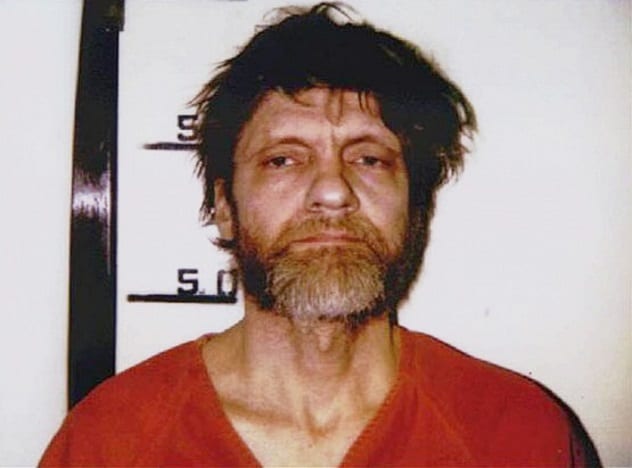
When all was said and done concerning Kaczynski’s reign of terror, three were killed, and 23 were injured by his homemade bombs. He is now serving eight life sentences for this, but a few more intriguing theories fell out in the wash that was his trial. His plea bargain detailed the fact that Kaczynski was an active follower of the Earth First! (EF!) movement, an ecoterrorist group. EF! considered themselves a warrior society charged with using any means necessary to protect Mother Earth against the evils of industrialization. Sounds familiar.
Investigator Barry Clausen, who once infiltrated EF!, was also the one to expose the link between the Unabomber’s activities and the EF! hit list. Clausen actually implicated Kaczynski a year before his arrest, but much of the information that he gleaned from his time in EF! went ignored by his superiors.[5] Add to that the fact that Kaczynski’s cabin was full of EF! publications and that he had copies of letters written to the organization as well.
Some also suggest that Kaczynski’s involvement with EF! explains why he often wrote to the FBI as if he were part of an organization, using “we” instead of “I” to describe his actions. This, however, could have actually been a clever ploy to draw attention away from himself. He had a reputation as a loner, so representing himself as a group might strike him from the suspect list. Still, many believe that Kaczynski may not have always acted alone in his ecoterrorism, and many wonder if he had a hand in more deaths than police were able to discover.
6 The Tylenol Killer

On September 29, 1982, in Chicago, a string of random deaths shook several neighborhoods to the core. Seven people died, including a 12-year-old girl, and they only had one thing in common with one another—they had all died after taking Tylenol. Police rushed around neighborhoods, using bullhorns to warn citizens and collecting bottles of the medicine. After some testing, it was found that someone had taken bottles of Tylenol, replaced some pills with cyanide, and placed them casually back on the shelf. This is the reason that tamper-proof seals are now required.
Tylenol issued a product recall that cost the company an estimated $100 million but ultimately saved their reputation. The killer was never caught, but the FBI continues to investigate. In 2011, they asked Kaczynski to submit DNA for testing. He agreed, but only on the condition that the FBI not auction off the property confiscated from his cabin. The auctions were set up to benefit his victims and their families, so they refused. In turn, Kaczynski refused to give a swab.
There are a few circumstantial details that likely led to the FBI’s request. The deaths happened near Kaczynski’s parents’ home in Chicago. Robert Wood Johnson and James Wood Johnson, the founders of Johnson and Johnson, fit Kaczynski’s particular quirk of choosing people with nature-themed names as his victims.[6] Finally, a man who police believe may be the killer was spotted in the background of a surveillance photo. This man (pictured above) resembles Kaczynski.
5 The Zodiac
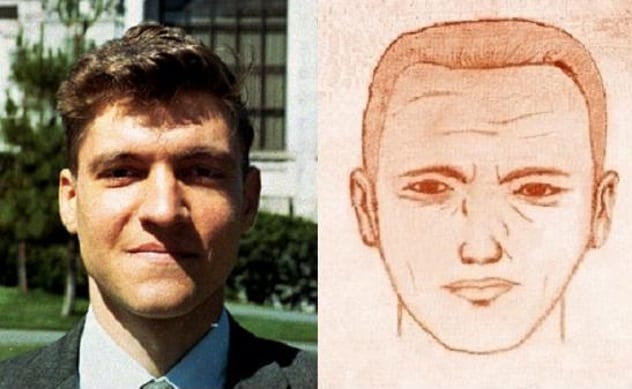
Kaczynski resembles yet another uncaught serial killer’s police sketch—the Zodiac Killer. Kaczynski set up shop in the Bay Area from 1967 to 1969, while the Zodiac operated there from 1968 to 1969. This time frame even gives Kaczynski time to have settled in before the rampage began. Both were also ruthless killers who enjoyed taunting authorities and used threats against innocent lives to get their writing on the front pages of newspapers.[7] Oddly enough, both also sent their letters with extra postage stamps to be sure of delivery.
The handwriting samples from their letters have startling similarities. The shapes of key letters are very close, and both use the same phrases often. This includes starting sentences with “so,” “by the way,” and “to prove” while also using double “is” sentences often. Both killers were also described similarly and owned similar items. The Zodiac was described as favoring one leg over the other, while Kaczynski’s brother described him as so pigeon-toed that it affected his gait. Both also used guns with flashlights attached to blind people, rifles, and Winchester Western .22 Super X ammo.
A genius mathematician, Kaczynski would have had the ability to create a complex cipher for the Zodiac’s coded messages. He also has a documented interest in symbols like the Zodiac’s crossed lines on a circle. He once signed a yearbook with a similar symbol and wrote a dissertation on the boundary functions of circles. The unit circle, which is, again, a circle with two crossed lines drawn in the middle, was a particular focus for him. Kaczynski used the Algiz rune to mark a campus where he struck once. The symbol looks like an upside-down peace sign and can represent the life of tree or a great terror. It is, once more, a circle with lines crossing inside it.
While the FBI has tested Kaczynski’s fingerprints against those found at a Zodiac crime scene and found no match, the Zodiac did claim that the police never really had his fingerprints. A writing analysis has shown that the two have different styles of writing. The FBI claims to be fairly certain that Kaczynski is not the Zodiac, but it wouldn’t be the first time that the FBI has fibbed, would it?
4 The Sketch
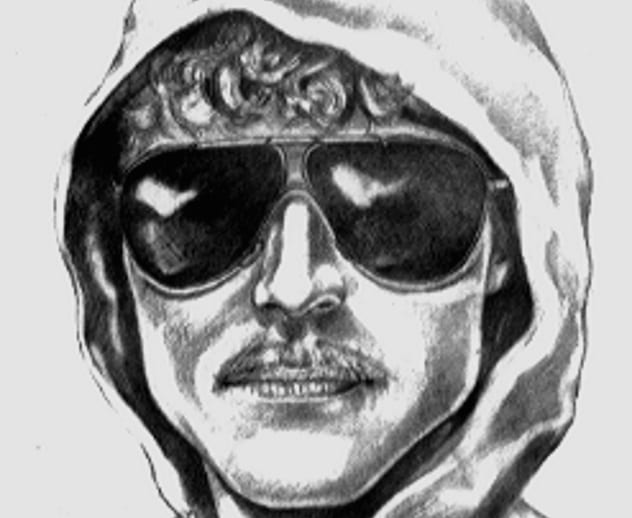
The famous sketch of the Unabomber doesn’t resemble Ted Kaczynski, especially not when compared to the possible picture of the Tylenol Killer or the sketches of the Zodiac. There were a few sketches of the Unabomber made, though. The first two strongly resembled Kaczynski, but the witness was unsatisfied with the likeness. Seven and a half year later, the FBI brought in Jean Boylan, an expert sketch artist who works from interview rather than composites, to make a new one. The new sketch (the well-known one) was distributed worldwide. After he was caught, people would note that the sketch did not resemble Kaczynski very much.
Boylan and the FBI think that they know why that is. Making a police sketch from a witness statement only hours after the event can be inaccurate, but making one after seven and a half years tests the limits of the human memory a bit. They believe that the witness didn’t remember the face of the Unabomber during her interview but rather the face of the first sketch artist she worked with years before.[8] The resemblance is striking, unlike the sketch’s resemblance to Kaczynski. The going theory is that she remembered remembering Kaczynski, and that left her with a confused image.
3 The Nathan R. Note
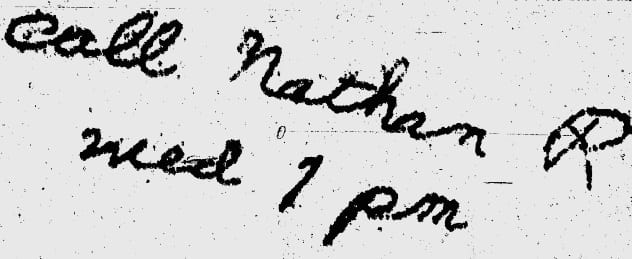
A website called unabombers.com is dedicated to telling the truth about the Unabomber, Ted Kaczynski, and J. Ray Dettling. Their belief is that Kaczynski has been set up for the crime, and the sketches are central to finding the truth. They put forth that the first composite sketches resemble Kaczynski because they are morphed images made with a NASA technique originally designed to reduce atmospheric distortion.
Various similarities between the supposedly morphed sketch and one of Kaczynski’s college photos are cited as evidence, including various lighting quirks and a faint afterimage of the background. In other words, they can tell by the pixels and from seeing quite a few photo morphs in their day. If the image is morphed, that would mean that Kaczynski was set up, and the witness rejected the initial sketch because it looked nothing like the man she saw. But why?
The website preserves a written statement supposedly made by Daniel Pride, a friend of J. Ray Dettling.[9] Pride opens by talking about the Nathan R. Note, a small memo scribbled on the envelope containing the Unabomber’s announcement of the Epstein and Gelernter bombs before they were detonated. He claims that he is the one who wrote the note while sitting at the desk of J. Ray Dettling, the actual Unabomber.
Pride went on to describe reading the Unabomber Manifesto on Dettling’s computer three years before it would be published and being told by Dettling that it was fiction. Dettling showed great glee whenever the Unabomber was discussed and often argued points found in the manifesto with Pride. He also lived a lavish lifestyle in a palatial mansion, despite his only income being five US patents that traced back to government agencies. The site ultimately alleges that Dettling is the real Unabomber, while Kaczynski was a convenient MK-ULTRA patsy.
2 Insanity
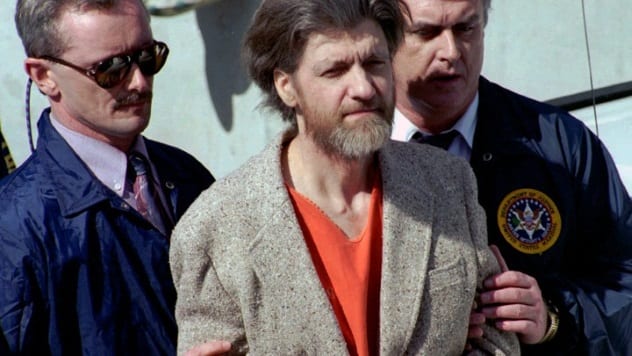
During Kaczynski’s trial, he flatly refused to accept the plea deal offered to him. As part of the plea, he would have to agree that he was insane. Kaczynski felt that this was both untrue and would hurt the validity of his manifesto. David Kaczynski, the brother who turned him in, insisted that Ted was disturbed and shouldn’t be subject to the death penalty. Several, but not all, of the psychiatrists and psychologists who examined Ted diagnosed him with paranoid schizophrenia. Ultimately, Kaczynski would accept the plea but would go on to deny his diagnosis vocally.
There is some evidence to back this up. When he began at Harvard at age 16, a nurse who gave him his freshman year checkup assessed him as stable, well-liked, and a bit shy. For men, the onset of schizophrenia generally hits sometime in the late teens or early twenties.
The onset of schizophrenia usually has a huge negative impact on work, but Kaczynski seemed to do well right up until he quit to go live in his cabin. His personal life was bad, but he did fine at work and study. Schizophrenia also impairs speech and thought, which doesn’t show in his meticulously drafted manifesto. Even the judge at his trial characterized him as lucid, calm, and intelligent.[10]
So, why the insanity plea, then? For one, it was a smart thing to do. An insanity plea can save a defendant from the death penalty, which any competent lawyer would want for their client. For two, it changed the narrative. Leaving aside his methods, Kaczynski’s manifesto was nothing revolutionary. Most people at the time knew that technology was getting a bit out of hand and worried about what industrialization might do to the environment. We still do. But if Kaczynski was insane, it would hurt his cause and allow many people to dismiss it.
1 A Prophet?

Kaczynski wrote in his very, very long manifesto that technology had caused more harm than good and that it was necessary to tear it all down before it got any bigger. The bigger it got, the worse the fallout would be, he reasoned. He also noted that progress had only made the First World’s rich more comfortable but had made the poor across the world miserable. The manifesto went on to insist that the masses would never willingly give up on progress but would instead hobble along while patching the damaged parts and destroying the planet. Finally, he concluded that a small group of dedicated environmentalists would need to use any means necessary to destroy society.
The first part of this narrative has a lot of truth to it, but the hook is right there at the end. It’s easy to imagine an angry, stressed reader getting to that last bit and suddenly feeling that he or she is one of the chosen who will save the Earth, even if it means killing people. Maybe especially if it means killing people. That is exactly what happened for several groups whose members openly identify as anti-civilization, or “anti-civ.”[11] Kaczynski is seen as a brilliant hero by anti-civ groups on both sides of the political spectrum—a fact that would no doubt infuriate the anti-left bomber.
Some Kaczynski devotees are more dangerous than others, but the most dangerous one seems to be Individualidades Tendiendo a lo Salvaje, or ITS, which roughly translates to “Individuals Tending Toward the Wild.” This group of Mexican Kaczynski followers have taken after him closely by sending bombs to college campuses and individuals they feel are ruining the environment.
It isn’t just a few fringe groups joining this movement, though. The Kaczynski craze has hit mainstream media as well. Keith Ablow wrote a piece for the Fox News website titled “Was the Unabomber Correct?” in 2013. Ablow decided that Kaczynski was right about many things and may have even been a prophet of sorts.
Paul Kingsnorth, a recovering environmentalist who gave up hope for change, published an essay on the disturbing experience of reading the manifesto for the first time. He wrote that he feared that he might agree with Kaczynski and that this might change his life profoundly. Considering Kaczynski’s methods, that’s a terrifying prospect.
Renee is an Atlanta-based graphic designer and writer.
Read more conspiracy theories about prominent people on 10 Bizarre Celebrity Conspiracy Theories and 10 Presidential Conspiracy Theories.

